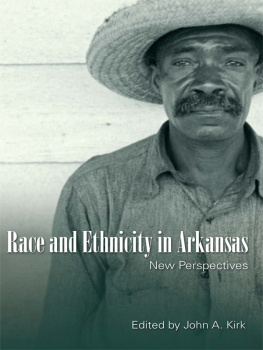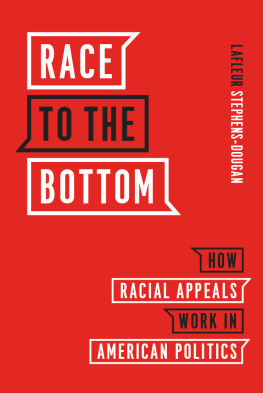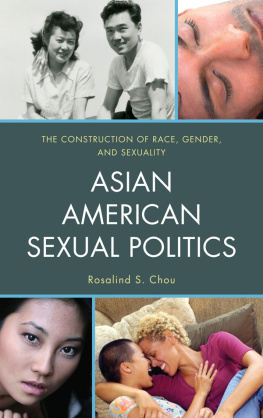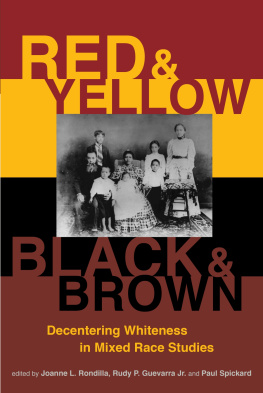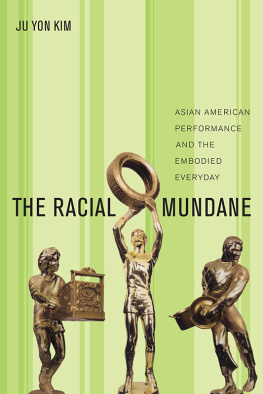RACE, NATION, AND REFUGE
RACE, NATION, AND REFUGE
THE RHETORIC OF RACE IN ASIAN AMERICAN CITIZENSHIP CASES
Cover Image: They shall not perish American Committee for Relief in the Near East poster created by Douglas Volk, 1918.
Published by State University of New York Press, Albany
2017 State University of New York
All rights reserved
Printed in the United States of America
No part of this book may be used or reproduced in any manner whatsoever without written permission. No part of this book may be stored in a retrieval system or transmitted in any form or by any means including electronic, electrostatic, magnetic tape, mechanical, photocopying, recording, or otherwise without the prior permission in writing of the publisher.
For information, contact State University of New York Press, Albany, NY
www.sunypress.edu
Production, Ryan Morris
Marketing, Anne M. Valentine
Library of Congress Cataloging-in-Publication Data
Names: Coulson, Doug, [date]- author.
Title: Race, nation, and refuge : the rhetoric of race in Asian American citizenship cases / Doug Coulson, State University of New York.
Description: Albany : State University of New York Press, 2017. | Based on authors thesis (doctoral - University of Texas at Austin, 2013) issued under title: The rhetoric of common enemies in the racial prerequisites to naturalized citizenship before 1952. | Includes bibliographical references and index.
Identifiers: LCCN 2016048647 (print) | LCCN 2016050701 (ebook) | ISBN 9781438466613 (hardcover : alk. paper) | ISBN 9781438466620 (e-book)
Subjects: LCSH: Emigration and immigration law--United States--History. | Citizenship--United States--History. | Race discrimination--Law and legislation--United States--History. | Asians--Legal status, laws, etc.--United States--History.
Classification: LCC KF4835 .C68 2017 (print) | LCC KF4835 (ebook) | DDC 342.7308/308995--dc23 LC record available at https://lccn.loc.gov/2016048647
10 9 8 7 6 5 4 3 2 1
CONTENTS
ACKNOWLEDGMENTS
No book exists without a social life of its own. I am extremely grateful to many individuals and institutions who offered valuable support as I worked on this project. My study of the racial eligibility requirements of naturalized citizenship law in the United States began during my doctoral studies at The University of Texas at Austin, and I first want to thank my advisors Patricia Roberts-Miller and Susan Heinzelman, along with Davida Charney, Sanford Levinson, Gretchen Murphy, and Jeffrey Walker, who served on my committee. They all offered immensely helpful guidance during the early stages of my research. I have also benefited from the comments, support, and encouragement of many others throughout the life of this project, including Marian Aguiar, Marilyn Altamira, Randall Auxier, Todd Battistelli, Erin Boade, Jack Chin, Marilyn Coulson, Richard Coulson, Kathleen Cleaver, Angela Daniels, Megan Eatman, Nikki Gray, Tekla Hawkins, Paul Hopper, David Kaufer, Nathan Kreuter, Amanda Moulder, Erin Mulhern, Stephanie Muller, Stephanie Odom, John OShea, Terry Phelps, Andreea Ritivoi, Bryan Russell, Christian Shippee, Connie Steel, David Thind, and Nyssa Wilton.
In addition, I am grateful for the considerable institutional support that this project has received. Carnegie Mellon University and The University of Texas at Austin both provided generous support. The librarians at the Hunt Library at Carnegie Mellon University, The University of Texas at Austin Libraries, and the Tarlton Law Library at The University of Texas School of Law all provided excellent research support, and the archivists at the National Archives at San Francisco, Seattle, Laguna Niguel, and Washington, D.C., provided me with invaluable assistance identifying and obtaining copies of archival documents. In particular, I am grateful to Charles Miller at the National Archives in San Francisco and Kathleen Crosman at the National Archives in Seattle for their kind and insightful assistance as I navigated the archives. I delivered talks regarding the project at the Oklahoma City University School of Law and at Carnegie Mellon University in April 2011 and January 2013, respectively, and I presented at the 2011 Federation Rhetoric Symposium and the 2012 Conference of the Association for the Study of Law, Culture, and the Humanities. The discussions that followed these presentations all greatly benefited me.
Because parts of this book were previously published in article form, I would also like to thank the publishers for the permission to include the previously published material here. Specifically, includes portions of Persecutory Agency in the Racial Prerequisite Cases: Islam, Christianity, and Martyrdom in United States v. Cartozian , University of Miami Race and Social Justice Law Review 2 (2012): 11788.
Finally, I am extremely grateful to SUNY Press for its interest in this project and its decision to publish the book, as well as to the two anonymous peer reviewers who commented on the manuscript.
INTRODUCTION
Forgetting, I would even say historical error, is an essential factor in the creation of a nation and it is for this reason that the progress of historical studies often poses a threat to nationality. Historical inquiry, in effect, throws light on the violent acts that have taken place at the origin of every political formation, even those that have been the most benevolent in their consequences.
E RNEST R ENAN , What Is a Nation?
There is a cement to the whole people, subtler, more underlying, than anything in written constitution, or courts or armiesnamely, the cement of a death identified thoroughly with that people, at its head, and for its sake. Strange, (is it not?) that battles, martyrs, agonies, blood, even assassination, should so condenseperhaps only really, lastingly condensea Nationality.
W ALT W HITMAN , Death of Abraham Lincoln
Necessity has no law.
L EGAL MAXIM
On May 8 and 9, 1924, an evidentiary trial was held in the United States District Court for the District of Oregon to determine whether Armenian immigrant Tatos Cartozian was racially eligible to become a United States citizen by naturalization. The United States Bureau of Naturalization, then under the direction of the Department of Labor and represented by lawyers from the Department of Justice, opposed Cartozians naturalization based on the assertion that Armenians were Asian and therefore neither free white persons nor aliens of African nativity or persons of African descent as required to be eligible for naturalization at the time. The Armenian community raised $50,000 in donations (equivalent to about $700,000 today) and hired the prestigious Portland law firm McCamant and Thompson to defend Cartozian. The defense claimed that Armenians were free white persons and therefore eligible for naturalization because they had descended from European ancestors and remained socially, culturally, and politically European
The National Archives has preserved a complete copy of the trial transcript in Cartozian , and what I find most interesting about the trial is not the evidence presented regarding ethnological racial classifications, which certainly formed part of the defenses case, but the ways in which the defense foregrounded appeals to the experience of being threatened or harmed by an external adversary of the United States. A lawyer for Cartozian asked one witness, for example, What was the attitude of the Armenian race in so far as you came in contact with them during the World War?, to which the witness replied:


